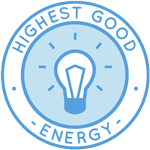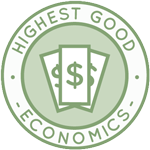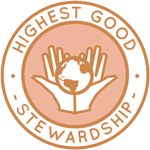Sustainable Eco-community Design – One Community Weekly Progress Update #449
Let’s open source and free-shared everything needed for sustainable eco-community design. One Community is doing this so it includes DIY-replicable models for food, energy, housing, education, for-profit and non-profit economic design, social architecture, fulfilled living, global stewardship practices, and more.
- Here’s our project overview
- Here’s our world-change methodology
- Here’s how this becomes self-replicating
- Here’s how we are open source and free-sharing all the do-it-yourself designs

OUR MAIN OPEN SOURCE HUBS
Click on each icon to be taken to the corresponding Highest Good hub page.
One Community’s physical location will forward this movement as the first of many self-replicating teacher/demonstration communities, villages, and cities to be built around the world. This is the October 31st, 2021 edition (#449) of our weekly progress update detailing our team’s development and accomplishments:
Sustainable Eco-community Design
One Community Progress Update #449
DONATE | COLLABORATE | HELP WITH LARGE-SCALE FUNDING
CLICK HERE IF YOU’D LIKE TO RECEIVE AN EMAIL EACH WEEK WHEN WE RELEASE A NEW UPDATE
YOU CAN ALSO JOIN US THROUGH SOCIAL MEDIA
ONE COMMUNITY WEEKLY UPDATE DETAILS
SUSTAINABLE ECO-COMMUNITY DESIGN – HIGHEST GOOD HOUSING PROGRESS
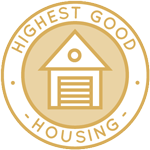 One Community is developing sustainable eco-community design through Highest Good housing that is artistic and beautiful, more affordable, more space efficient, lasts longer, DIY buildable, and constructed with healthy and sustainable materials:
One Community is developing sustainable eco-community design through Highest Good housing that is artistic and beautiful, more affordable, more space efficient, lasts longer, DIY buildable, and constructed with healthy and sustainable materials:
- Learn about: Our Upcoming Crowdfunding Campaign
- Learn about the different village models: 7 Sustainable Village Models
- Visit the open source portals for the first two: Earthbag Village OS Hub | Straw Bale Village OS Hub
This week the core team worked on the different stabilized earth compositions to test for compressive strength. We had conversations with Marcus and Frank to keep their efforts moving along, reached out to get help with HVAC work and coordinated a review by Amin, and responded to and reviewed Daniela’s comments/edits on Walipini and Aquipini design criteria.

Sustainable Eco-community Design – Stabilized earth compositions
The core team started to generate another 3D SketchUp model of Murphy bed using the latest assembly instruction document. We checked sections on lumber requirements, tools and hardware items. We then started assembling the Murphy bed wall framing using SketchUp.
Jose Luis Flores (Mechanical Engineer) completed his 67th week helping finish the Net-zero Bathroom component of the Earthbag Village. This week Jose Luis began analyzing and rendering the best possible location for the pump in the water storage system of the Net-Zero Bathroom.
The best possible location was in between the bottom center barrel and the junction distributing the rain water to the barrels surrounding the center. The pump dimensions were found on the company’s page and were used to create a replica of the motor to have an accurate model. Different distribution arrangements from the pump were analyzed to determine the most uniform one.
It was determined that the best possible distribution would be to have the pump connect to a midpoint junction between the outer set of barrels. The pictures below show some of this work.
Stacey Maillet (Graphic Designer) completed her 53rd week working on the final edits and revisions to the Murphy bed instructions. This week, Stacey completed the Murphy bed design PDF and submitted it for review by several other team members. We have gone through a couple drafts and almost all of the errors in wood piece sizes have been corrected.
There were also some changes made to the layouts of the lumber cutting pages with different icons for saw blades and cutting directions. There is still some discussion to be had regarding the overview and cover pages, as well as the cut piece listing pages. Some of the page numbers have been revised since the last draft but the instructions still complete with 120 pages.
Screenshots below are related to this latest progress.
Aidan Geissler (Sustainability Researcher) completed his 24th week helping with 2nd-to-final review, feedback, and content editing. This week Aidan completed his final review of the Most Sustainable Insulation tutorial, the page with all the new content is now live! Aidan has also continued to provide comments, feedback, and guidance on the Electric Vehicle and Solar Farm Battery Storage research.
Additionally, Aidan began reviewing and revising the Health Insurance content. Below are some images related to this work.
Daniela Andrea Parada (Civil Engineering Student) completed her 18th week helping with the Sustainable Roadways, Walkways, and Landscaping tutorial development, mainly focused now on the Earthbag Village components. This week Daniela first screen captured some missing BioVeda courses regarding sustainable living.
She then worked on updates for the Aquapini and Walipini report. She responded to comments and rewrote paragraphs in order to make them clearer. Some new images were incorporated into the narrative as well. Lastly, Daniela wrote paragraphs summarizing information from the notes she took on water harvesting for low-standard rural roads.
Pictures below are related to this work.
Shreyas Dayanand (Battery Research Engineer) also completed his 15th week helping with the solar microgrid design specifics related to electric vehicles and battery sizing. This week, Shreyas continued to complete and conclude his work in the “EV Integration and 100% Off-grid Needs” report.
He researched and found information regarding the charging of the Teslas that have been selected to be a part of the community. He has added more information regarding the choice made towards the Tesla Model X, information regarding the case studies and journal papers that have been listed in the report as support documents, and added information in the conclusion area.
He also worked towards editing the sentences and addressing comments in the document. Pictures below are related to this work.
The Compression Team consisting of Dominick Banuelos (Civil Engineering Intern), Jarot Tamba (Civil Engineering Intern), John Paul D. Matining (Civil Engineer Intern), and Marcus Nguyen (Civil Engineering Intern) completed their 14th week helping with the Aircrete and earthbag compression testing.
This week the Compression Testing Team organized all documents required for final testing. They put the stabilized earth spreadsheets together, wrote up the step-by-step procedures for the aircrete and the stabilized earth, and researched a document of previous compression tests on stabilized earth.
They also completed aircrete calculations based on a 90% foam to 10% cement mixture and researched a location to buy dirt for stabilized earth. Pictures below are related to this work.
SUSTAINABLE ECO-COMMUNITY DESIGN – DUPLICABLE CITY CENTER PROGRESS
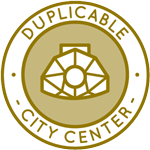 One Community is developing sustainable eco-community design through a Duplicable and Sustainable City Center that is LEED Platinum certified/Sustainable, can feed 200 people at a time, provide laundry for over 300 people, is beautiful, spacious, and saves resources, money, and space:
One Community is developing sustainable eco-community design through a Duplicable and Sustainable City Center that is LEED Platinum certified/Sustainable, can feed 200 people at a time, provide laundry for over 300 people, is beautiful, spacious, and saves resources, money, and space:
- Learn about this building and it’s function: Duplicable City Center Open Source Hub
This week the core team added all the updated graphics, linked the updated spreadsheet, and proofread the Most Sustainable Insulation tutorial. The updated page is now live.
Luis Manuel Dominguez (Research Engineer) completed his 26th week helping with research related to the City Center Eco-spa designs. This week, Luis focused on the City Center Hot Tub Design’s blower component which will integrate air in the form of bubbles into the system.
The current design is to have a separate air supply line to the spa from the blower, and then use venturi jets to integrate the air comfortably into the flow. Luis was able to roughly calculate the anticipated pressure from the water that would be met at the venturi jet which determines the sizing requirement of the blower.
All that is left is determining the proper blower available on the market that is best suited for the system’s design. Moving forward, Luis will finalize the component selection and the electrical requirements to supply the energy team. Pictures below are related to this work.
Venus Abdollahi (Architectural Designer) completed her 15th week helping finish the Duplicable City Center designs. This week, Venus completed the other half of section A_A called A”_A”. She edited section A”_A” according to the new cut line and new positions of the stairs. Venus also checked the floor heights and added furniture to the section. See pictures below.
And Carlos Lillo (Engineering Technician) completed his 14th week helping with the pallet furniture designs for the Duplicable City Center guest rooms. Carlos finished the updated assembly animations for the Pallet Bed. These included generating several items to be included in the render.
A clock, glasses, books, pillow and bed sheets were added, all with proper physics behavior and animation as they dropped in. Pictures below are related to this work.
Xuanji Tang (Architectural Designer) completed her 9th week working on Duplicable City Center architectural review and updates related to the structural code. This week she worked on the structure of the cupula and basement. The basement has been changed to a rectangular shape with new columns.
Xuanji also added the columns and grid for supporting the cupola and worked on the grid for the Living Dome and Social Dome. Pictures below are related to this work.
Huiya Yang (Volunteer Architectural Designer) completed her 6th week working on the Duplicable City Center architectural review and updates related to the structural code. This week she had a meeting with Xuanji and Yuxi to discuss the application of the new moment frame columns system.
After the meeting, she helped develop new floor plans for the living dome using the moment frame column system discussed. She also finished another option of the 2nd-floor plan for the Living Dome which coordinates with the original column system. Pictures of some of this work are below.
Bryan Lee Budiman (Industrial Designer) completed his 4th week working on the Duplicable City Center dormer assembly instructions. This week, Bryan redesigned the dormer to be less costly and increased the insulation. The pictures below share some of this developing work.
Yuxi Lu (Architectural Designer) also completed her 4th week working on the Duplicable City Center architectural review and updates related to the structural code. This week Yuxi attempted a new grid for the columns in the Social Dome as the team wanted to see whether the new grid could spark new ideas.
She started with a 20 x 20 ft grid, and through the process of elimination adjusted the shifting of grids according to existing walls back and forth to ensure the ideal placement of columns. The goal is to make the least amount of impact possible while building remains structurally sound. Pictures of some of this work are below.
SUSTAINABLE ECO-COMMUNITY DESIGN – HIGHEST GOOD FOOD PROGRESS
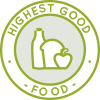 One Community is developing sustainable eco-community design through Highest Good food that is more diverse, more nutritious, locally grown and sustainable, and part of our open source botanical garden model to support and share bio-diversity:
One Community is developing sustainable eco-community design through Highest Good food that is more diverse, more nutritious, locally grown and sustainable, and part of our open source botanical garden model to support and share bio-diversity:
- Learn about the structures: Hoop House Hub | Aquapini & Walipini Open Source Hub
- See what we’ll be growing: Gardens & Hoop Houses | Large-scale Structures | Food Forest | TA
This week the core team continued working on the Chicken Coop Assembly document. We reviewed text and images of the document from the beginning and corrected/updated text and images that were not clear or detailed enough.
We also discussed placement of the small studs on the second level on east and west wall framing. Pictures below are related to this work.
Another team member reviewed the chicken document through page 68. Discussions included adding short studs to the east and west upper walls, various images and different perspectives of those images, securing the hardware cloth, and rephrasing existing text to accommodate changes to some of the images.
Qiuheng Xu (Landscape Designer) also completed her 56th week volunteering, now helping with the Aquapini & Walipini external landscaping details. This week Qiuheng worked on the next round of adjusting the walkthrough video path and visual fixes based on last week’s comments and feedback.
Then she started to fill the inside model of the structures in SketchUp, so they can match the design plan. Pictures below are related to this.
Frank Roland Vilcapaza Diaz (Mechanical Engineer) completed his 17th week helping with the Aquapini & Walipini and Tropical Atrium climate battery designs. This week Frank worked on energy calculations of the HVAC system and the comparison of the different approaches that one can take to get the values needed for infiltration.
The values calculated for the tool-assisted calculation were also compared in graphical form. The pictures below relate to this.
And Brian Storz (Culinary Project Manager) completed his 7th week helping lead the completion of the Transition Food Self-sufficiency Plan, Transition Kitchen designs, Food Procurement and Storage plan, and related menu and meal plans. This week, through experimenting in the kitchen, Brian developed a soup base for vegan and omnivores that is delicious.
It has an amazing nutritional value, is very cost effective to buy and to produce. Brian will keep working on recipes like this that can be the base of the menu and can optimize production and flavor for the kitchen. Below are some images related to this work.
SUSTAINABLE ECO-COMMUNITY DESIGN – HIGHEST GOOD EDUCATION PROGRESS
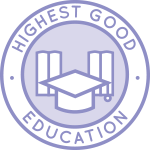 One Community is developing sustainable eco-community design through Highest Good education that is for all ages, applicable in any environment, adaptable to individual needs, far exceeds traditional education standards, and more fun for both the teachers and the students.
One Community is developing sustainable eco-community design through Highest Good education that is for all ages, applicable in any environment, adaptable to individual needs, far exceeds traditional education standards, and more fun for both the teachers and the students.
This component of One Community is about 95% complete with only the Open Source School Licensing and Ultimate Classroom construction and assembly details remaining to be finished. We’ll report on the final two elements to be finished as we develop them.
With over 8 years of work invested in the process, the sections below are all complete until we move onto the property and continue the development and open sourcing process with teachers and students – a development process that is built directly into the structure of the education program and everything else we’re creating too:
- Program Overview: Education Open Source Hub
- How the components work together: How to use the Education for Life Program
- Lesson Plans for Life – Lesson Plans How-to
- Foundations of Outstanding Leaders, Teachers, and Communicators
- Curriculum for Life
- Teaching Strategies for Life
- Learning Tools and Toys for Life
- Evaluation and Evolution
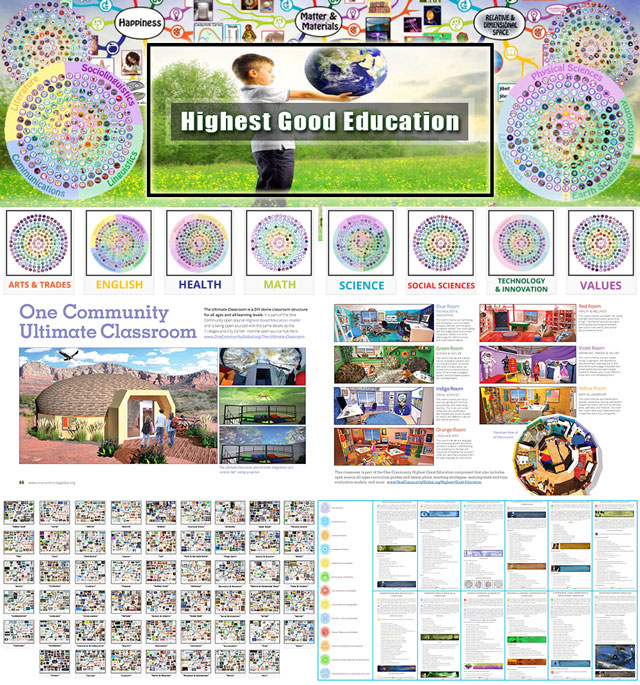
Highest Good Education: All Subjects | All Learning Levels | Any Age – Click image for open source hub
SUSTAINABLE ECO-COMMUNITY DESIGN – HIGHEST GOOD SOCIETY PROGRESS
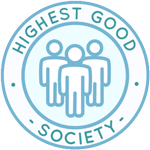 One Community is developing sustainable eco-community design through a Highest Good society approach to living that is founded on fulfilled living, the study of meeting human needs, Community, and making a difference in the world:
One Community is developing sustainable eco-community design through a Highest Good society approach to living that is founded on fulfilled living, the study of meeting human needs, Community, and making a difference in the world:
- Read the Highest Good society overview: Highest Good Society
- Learn about the model for fulfilled living and sharing: A Day in the Life
- Learn about the 4 economic models: RBE | For-profit | Non-profit | Entrepreneurship
- Learn about our open source community collaboration and management software: The Highest Good Network
This week the core team completed 32 hours managing One Community volunteer-work review not included above, emails, social media accounts, and interviewing and getting set up new volunteer team members. Also additional testing and bug identification and correction confirmations for the Highest Good Network software were completed. Pictures below show some of this.
The core team also added all the updated Economics and Stewardship badges to the Highest Good Network software. The image below shows some of these along with their descriptions.
Aleksandra “Alex” Gorkovenkø (Graphic Designer) also completed her 12th week working on images for our open source social media strategy. This week, Alex focused on correcting mistakes from the previous week and adjusting her new work according to feedback. Now the text is shorter and bigger. She also watched videos about text highlighting and how to make illustrations out of photography.
In total, 51 images were approved this week.
Hannah Gardner Hattersley (Software Engineer) completed her 6th week working on the Highest Good Network software. This week, Hannah reviewed multiple times to eventually approve a PR. Additionally, she broke down logic in the streak badges, took notes on what she understood the goals of various code sections to be, and monitored how data changed as it moved through the code.
Hannah identified two issues in the logic and solved them but it has not yet addressed the bug in them not dropping off. She will continue to move through this badge logic and focus on the bug next week. Pictures below are related to this work.
Pranav Borole (Software Engineer) also completed his 5th week working on the Highest Good Network software. This week Pranav took care of deployment issues requiring him to go beyond and debug an issue outside his expertise. He successfully solved it in a short amount of time and got the system back on track.
Later in the week, Pranav incorporated feedback on active PRs and implemented the suggested changes. He then picked up the implementation of the timezone component and integrated external API for helping to get the Timezone for a given location. Pictures of some of this work are below.
AND WE PRODUCED THIS WEEKLY UPDATES BLOG – CLICK HERE TO SUBSCRIBE
FOLLOW ONE COMMUNITY’S PROGRESS (click icons for our pages)
INVESTOR PAGES
GET INVOLVED
DONATE | WAYS ANYONE CAN HELP | MEMBERSHIP
CLICK HERE FOR ALL PAST UPDATES
 One Community
One Community